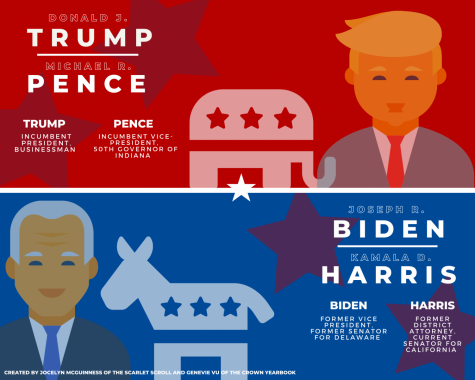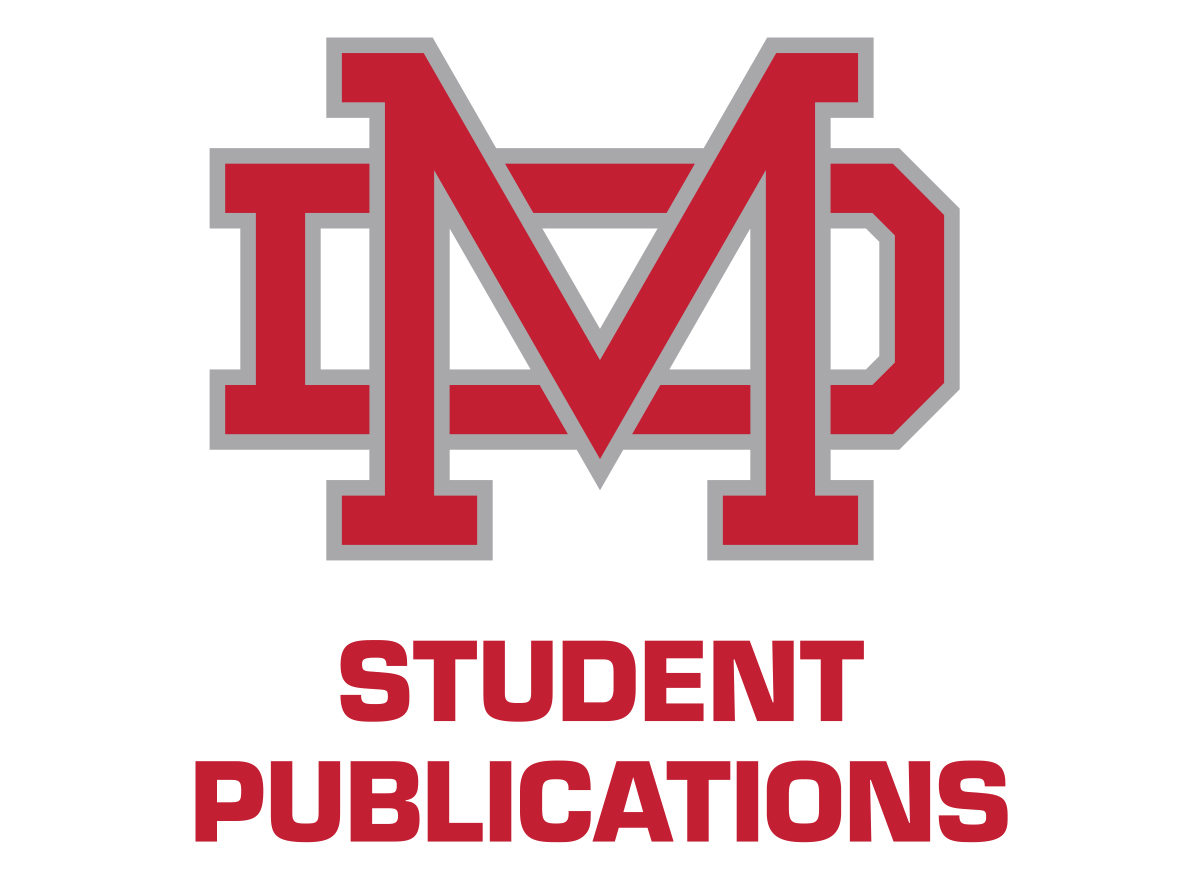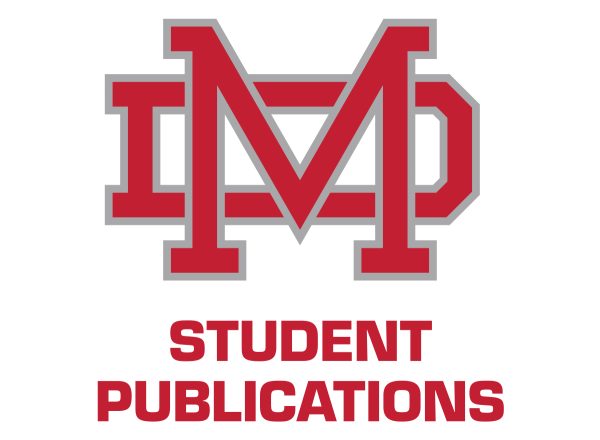Elections 2020: Recap of the first presidential debate
Despite being full of back-and-forth interruptions, the two presidential contenders discussed the open SCOTUS seat, the economy, and COVID-19, among other topics.
October 6, 2020

As the 2020 presidential election grows near, Democratic presidential nominee, former Vice President Joseph R. Biden, and Republican presidential nominee, incumbent President Donald J. Trump, had their first nationally-televised debate last Tuesday after months of campaigning.
The first presidential debate was aired on FOX and was moderated by veteran journalist and FOX News Sunday host Chris Wallace at Case Western Reserve University in Cleveland, Ohio. The debate was broken into six 15-minutes segments, each focused on a certain topic to which each candidate could respond.
According to CBS, “each candidate was supposed to have two minutes to speak at the beginning of each segment, with the remainder of the time up for grabs.” While the debate was full of – sometimes chaotic – banter between the two candidates, moderator Chris Wallace managed to ask a number of important questions ranging from the economy to how the current Coronavirus pandemic has been handled.
One of the most timely topics was the issue of filling the seat of Supreme Court Justice, Ruth Bader Ginsburg, who died Sept. 18 and who, just before her death, told her granddaughter, “My most fervent wish is that I will not be replaced until a new president is installed.”
President Trump argued that nominating Judge Amy Coney Barrett was justified by the fact that a Republican won the last presidential election and the Republican party has control of the Senate.
“Elections have consequences,” Trump said in the debate.
Biden, on the other hand, refuted by arguing that the Supreme Court Justice should be determined after the presidential election once the American people vote on a president.
In regards to the economy, President Trump brought up his pro-business tax cuts and the gains in the stock market made under his administration. He also argued that, if his opponent were to be elected president, Biden would remove those tax cuts and worsen the economy. Biden countered that the Obama administration created the increase in jobs and economic recovery which the Trump administration inherited when he took office.
Wallace then brought up the topic of how the Trump Administration has handled COVID-19 by asking each candidate how they would handle the Coronavirus in 2021. Trump responded by bringing up how the travel ban on China in the beginning of March helped save lives. He continued by reminding the audience about how some Democratic governors, including New York Governor Andrew Cuomo and California Governor Gavin Newsom, thanked him for his early response to the virus.
Biden argued that “the administration started to inform the public of the disease’ severity only when it hit the stock market.” He continued by explaining that he would listen to science and also advocated for a vaccine in the coming year if elected to office.
On the topic of health care, Trump explained his efforts to reduce prices of prescription drugs, such as insulin, by buying them from other countries and providing the American people with “better health care at a much much lower price.”
Biden gave his stance on health care by restating his support for Obamacare, specifically by supporting the addition of a public option to Obamacare, while continuing to put emphasis on the fact that his administration would not end private health insurance or create a government takeover of healthcare. He continued by saying that a public option of Obamacare would only be available for the same Americans who qualify for Medicaid.
Towards the end of the debate, Biden encouraged the American people to get out and vote and highlighted the importance of voting. He also stated his confidence in mail-in ballots and confidence in the fact that they would not be used to cheat in the upcoming election.
“Show up and vote. You will determine the outcome of this election,” Biden said.
Trump, on the other hand, remained skeptical that a fair election could be conducted through the use of mail-in ballots due to possible cheating or fraud.
According to the Associated Press, due to the complications encountered during the first debate, the presidential debate commission plans to enforce changes in the upcoming debates in order to add more structure to their format. These changes could include having the ability to cut off the mic of either candidate if they continue to interrupt each other or the moderator. The upcoming debate will also be different because it will be in a town hall format with 15-20 audience members asking the presidential candidates questions in addition to C-SPAN political editor Steve Scully, who will serve as the moderator.
The next presidential debate will be held in Miami, Fla., at the Adrienne Arsht Center for the Performing Arts on Oct. 15.
Click here to watch the debate and here to read a transcript.




![Mater Dei Track runner and freshman Aidan Lynch wins the 400 meter race. The Trinity Lower Level track meet was held Friday, Apr. 21 at Santa Margarita High School. This was the last track meet of the season for the Junior Varsity and Frosh-Soph teams. Freshman Bella Alafita reflects on her season. “I enjoyed seeing the progress I have made from the beginning of this season to the end of this season and felt really great [about] getting a personal best at the end,” Alafita said. “I’m also excited to see how much I can improve next season.” 📸 and post by Boston Crenshaw, staff reporter for the Scarlet Scroll newspaper. #trackandfield #materdei](https://thescarletscroll.com/wp-content/plugins/instagram-feed/img/placeholder.png)


